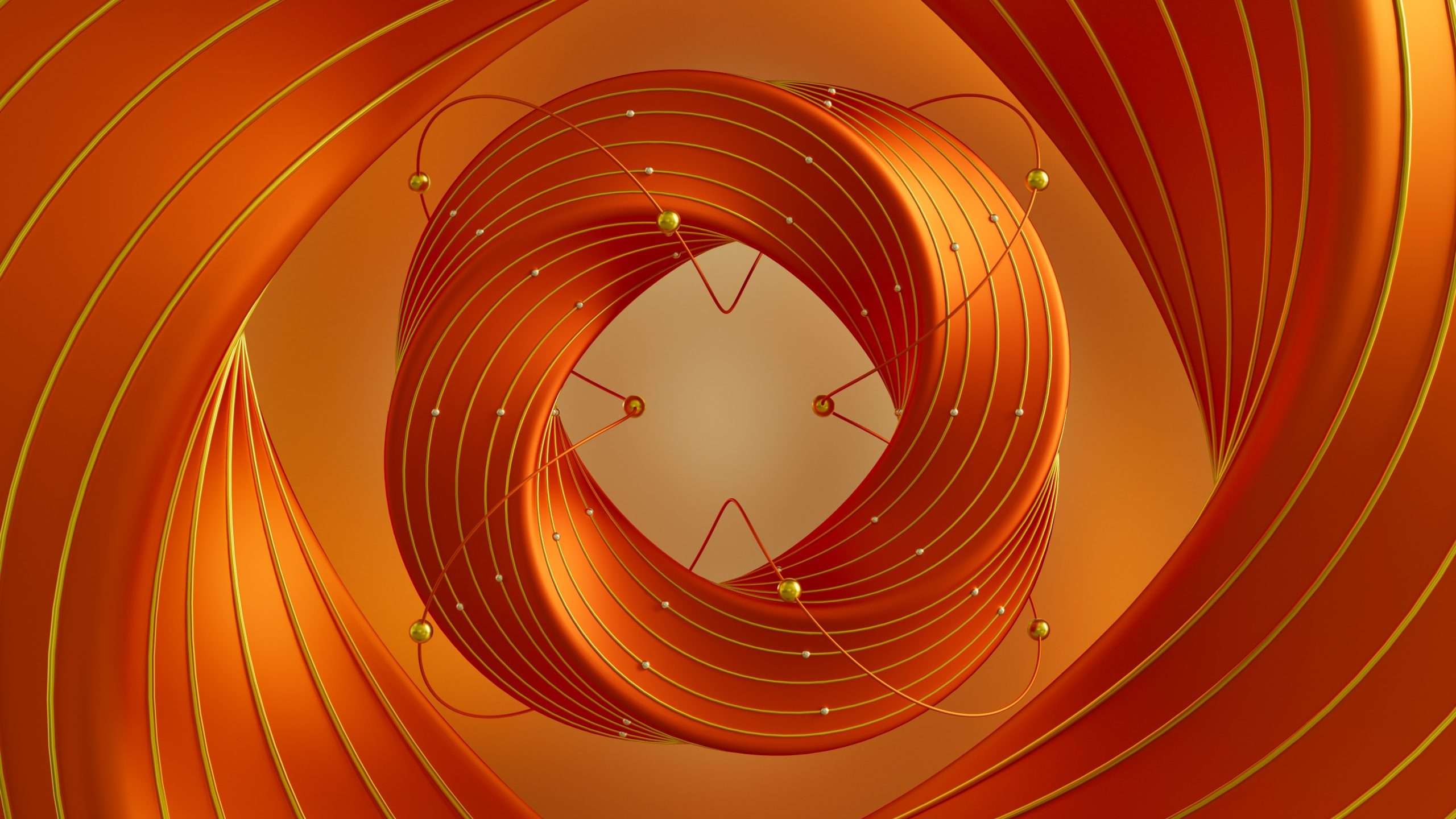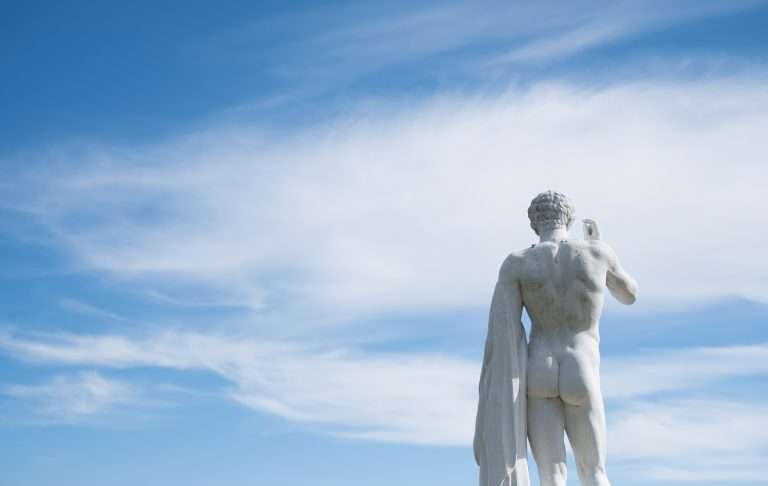My disparate worlds were unified when I found John Vervaeke.
For many years, I felt like my existence was split in two, as if there were two sides battling in me. One was the rational part, which championed science and facts; the other was the spiritual part, always craving meaning and connection.1I find it silly now to distinguish between the two in such a definitive fashion, but it helps the image I’m trying to paint. I always felt that the intersection of the two was bound to muddle both – like when you’re trying to mix two vibrant colors and you end up with an indeterminate shade.
On top of that, I’m an atheist. So tying spirituality to a particular deity and a strict set of commandments wasn’t gonna cut it. However, I couldn’t dismiss the importance of religion (and believe me, I’ve tried) or the role it played in shaping communities and morality. I just needed to see it framed differently.
My two sides resulted in me being part of two worlds. In the first one, I was consuming science podcasts and documentaries, reading books like Robert Sapolsky’s Behave and Neil deGrasse Tyson’s Astrophysics for people in a hurry. I was on a mission to understand myself and the world better by getting at the foundation of my biology and the laws that govern our cosmic home. In the “other” world, I was exploring practices like Vipassana meditation and Yoga, while immersed in books about Buddhism and non-duality, such as Being Nobody, Going Nowhere.
In my search to find someone to bridge the gap between these two disciplines, I’ve come across two types of people.2 I’m generalizing to make a point. Obviously, these are not the only types of people one can encounter. First, there was the Secular Savant, buried deep in her research and dismissive of anything that doesn’t neatly fit in the gridlines of a graph. “Show me the evidence,” she would call out. At the opposite pole was the Quantum Mystic, who liked to cherry pick what aspects of science he propped up as evidence for his claims. You could easily spot him by the eagerness to invoke the observer effect in quantum physics as evidence of our consciousness influencing reality.
Luckily I discovered John Vervaeke, cognitive scientist and professor at the University of Toronto. His academic work focuses on wisdom, flow, insight, relevance realization and mindfulness, among others. I jumped headfirst into his popular YouTube series Awakening from the Meaning Crisis, a 50 hour intellectual pilgrimage from Buddha and Socrates, to Tillich and Corbin, exploring the symptoms of our modern condition – alienation, nihilism, depression – and what we can do to regain a sense of meaning in our lives.
For me, John Vervaeke is the first person who was able to marry the rigor of science with the wisdom of spirituality, while honoring the complexities of both. I appreciate him because he doesn’t water the former with superstitious language or reduce the latter to vague New Age cliches.
Wisdom is the pinnacle of human cognitive development. It’s not just about knowing or having information; it’s about the transformative understanding of oneself and the world, which is at the heart of both cognitive science and spiritual practice.
I’d like to present three concepts in which he embedded both science and spirituality, in a way that has deeply influenced me and altered how I think about the world.
Sacredness beyond the supernatural
For many of us, the idea of sacredness is directly linked to a personal God or supreme being. Vervaeke uses the terms “metaphysical essentialism” to refer to this attitude. He argues that if we want to solve our meaning crisis, we must untangle the sacred from the supernatural.
We have to come up with a way of re-articulating our worldview in which we can get back that sense of deep connectedness.
Vervaeke maintains that sacredness can be understood through “relevance realization” – the term he uses to describe the dynamic process of discerning what’s important for us in the moment. Sacredness, according to him, emerges from our participation in and connectedness with the world, not through an external divine being. It’s about a recognition that there are aspects of reality that are inexhaustible – there’s always more to uncover, like a transcendent onion. It’s a loop of wonder and insight: the more we peer into the depths of reality, the more we are changed as persons, so we can connect even deeper to the world.
Rationality beyond logic
In our times, logic is viewed as the bedrock of rationality. People tend to think of someone with a ‘debate bro’ style as more rational compared to, say, a spiritual teacher. Cold hard facts over anything. That’s how rationality is perceived. Cold hard facts over anything. That’s how rationality is perceived.
Assuming that you can reduce rationality and identify it with the single competence or syllogistic reasoning is fundamentally wrong. It’s not paying attention to the science.
However, in Awakening from the meaning crisis, Vervaeke demonstrates there’s a non-inferential aspect to rationality, meaning that it doesn’t solely rely on conclusions drawn from premises. Other aspects play a role too, such as insight and problem framing.
When we try to solve a problem in a rational way, we can’t be algorithmic or use standards that are certain and complete. However, that doesn’t mean we approach the process at random either. This is where relevance realization, mentioned above, comes into play. Relevance realization helps us zoom in on the, well – relevant, information we should consider in the first place, before applying logic.
Ultimately, rationality isn’t simply about being logical, but about knowing when, where and to what degree to use logic – and to know that you need wisdom.
Enlightenment beyond Equanimity
I’ve read my fair share of books on this elusive “state”, from spiritual teachers across diverse traditions. Although I could understand what they were hinting at, I was always left with a bitter taste in my mouth. Something didn’t sit right with me. It took me a while to realize it had to do with an idea many enlightened individuals espouse: that all is perfect as it is and nothing needs to change.
If enlightenment was the equivalent of getting a lobotomy, I didn’t see its point.
Vervaeke conceptualizes enlightenment not as a mystical state achieved by a few, but as a process of transformation that can be undertaken by anyone, and understood through cognitive science.
Crucially, the path to enlightenment isn’t divorced from participating in the world, but depends on it. Vervaeke claims, and I strongly agree, there’s no point in “waking up” only to renounce the world for a monastery on top of a mountain. It should have implications for how we live our lives: what we prioritize and how we show up in our work and relationships.
For him, enlightenment can be brought about by a set of practices that directly address the perennial problems people have faced since the dawn of time: addiction, suffering, self-destruction, etc.
I’m forever indebted to Dr. Vervaeke for helping me break free from those apparent two worlds I thought I lived in. He taught me to flow between the complexities of life with grace, patience and humility.
Footnotes
- 1I find it silly now to distinguish between the two in such a definitive fashion, but it helps the image I’m trying to paint.
- 2I’m generalizing to make a point. Obviously, these are not the only types of people one can encounter.



